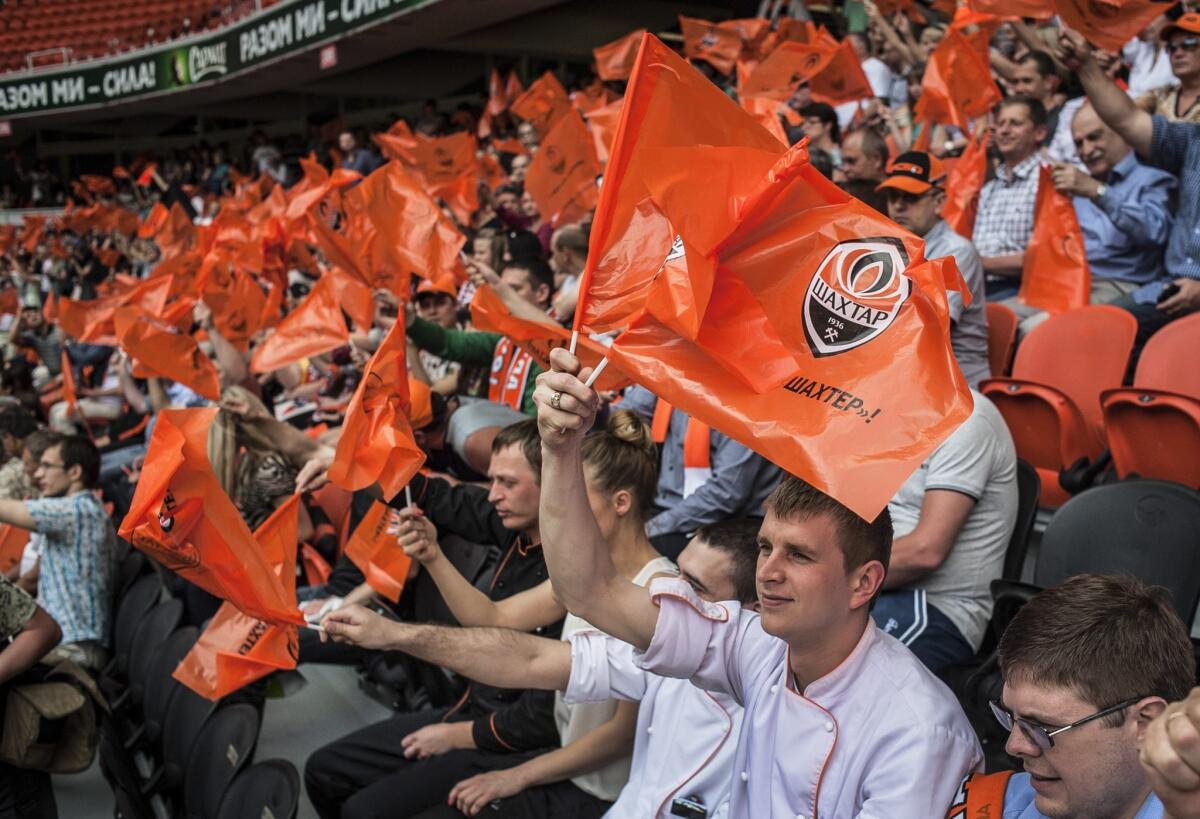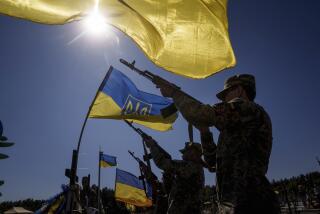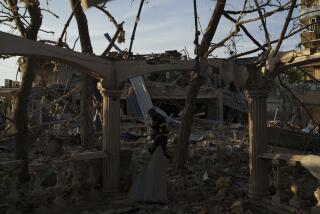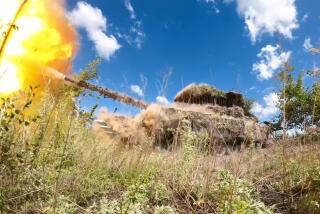Eastern Ukrainians reject pro-Russia separatists, magnate claims

A steel and mining magnate who employs 300,000 workers in eastern Ukraine claimed Wednesday to have mobilized a million-strong protest against pro-Russia separatists as Kremlin support for the agitators appeared to weaken.
Just four days before Ukrainians go to the polls to replace the pro-Russia president chased from office three months ago by a rebellion, Rinat Akhmetov, Ukraine’s richest man, heralded his “Voice of Donbass” campaign as evidence that most people in the turbulent east oppose the armed disruptions in the Donetsk and Luhansk regions.
The separatists control a few administrative offices in regional capitals, but the majority of residents, who polls suggest oppose dividing Ukraine, have largely been silent in the face of the militant takeovers that began two months ago.
New protests organized by Akhmetov and managers of his industrial operations that are the backbone of Ukraine’s Rust Belt have galvanized the peaceful majority to warn “against destabilization of the situation in Donbass, against violence and chaos, banditry and looting,” Akhmetov said in a statement sent to Ukrainian and foreign media.
Ukrainian government officials in Kiev and their backers from the European Union and the United States accuse Russian President Vladimir Putin of fomenting the unrest in the eastern regions, where many residents speak Russian and work for mines and factories closely integrated with the Russian economy.
The armed occupations began shortly after Russian troops invaded Ukraine’s Crimea peninsula and staged a hasty referendum, allegedly supported by 97% of voters, demanding independence and annexation to Russia. Putin signed a decree making the territory part of Russia two days after the dubious March 16 polling.
Separatists in Donetsk and Luhansk held similar votes on independence on May 11, claiming more than 90% support for seceding from Ukraine. Independent polls suggest otherwise, with more than 70% of those living in the restive regions telling opinion researchers that they wanted to remain part of Ukraine.
Ukraine’s crisis was sparked six months ago when former President Viktor Yanukovich unilaterally abandoned a European Union association agreement that Kiev had been negotiating with the 28-nation Western bloc for three years. Pro-European Ukrainians took to the streets in angry denunciation of the close Kremlin ally, forcing him from office on Feb. 21.
Kremlin officials have refused to recognize the opposition politicians who have been running the government since Yanukovich fled to Russia, claiming they are unelected and therefore illegitimate. Moscow had also denounced the approaching presidential election as illegal — until the past few days, when U.S. and European leaders warned that further economic sanctions would follow if Russia interfered with Sunday’s vote.
On Wednesday, Putin, while attending an Asian security summit in China, told journalists that he had ordered Russian troops back from the Ukrainian border to “create additional, favorable conditions” for Sunday’s vote in Ukraine.
“Any political process is better than an armed standoff,” Putin said, apparently referring to roundtable talks between Kiev’s interim leaders and representatives of Ukraine’s disparate regions on ways to decentralize power in Ukraine.
It remained unclear whether Putin was bowing to the pressure of sanctions already imposed by the West that have spooked investors in Russia and slashed stock values and the ruble, or if he was simply putting distance between the Kremlin and the separatists’ actions that he has denied instigating or supporting.
The Kremlin’s posture toward Kiev and the presidential election has noticeably changed since opinion polls have shown confectionary magnate Petro Poroshenko with a commanding lead in the campaign. Russian Foreign Minister Sergei Lavrov said last week that Poroshenko was a known quantity that Russia could deal with.
Ukraine’s oligarchs had done little to confront the violence in the east until last week, when Akhmetov deployed thousands of his steelworkers in the port of Mariupol to patrol the streets after the pro-Russia gunmen were driven out by Ukrainian troops.
The protests organized by Akhmetov began Tuesday with workers called to stand together outside their places of employment at noon by factory whistles sounded from dozens of enterprises, Akhmetov said.
Western media in the tense region, including the BBC, carried video of protesters honking their car horns in defiance of the occupation and ships sounding their horns in Mariupol, where Akhmetov’s System Capital Management conglomerate operates a massive steel foundry.
In announcing the pushback against armed occupation, Akhmetov on Tuesday said he expected the turnout to be massive because “people are tired of living in fear and terror.” His Wednesday statement said more than a million workers took part, including 200,000 from his own businesses. The figures could not be independently confirmed, as the magnate’s enterprises are scattered across a wide swath of eastern Ukraine and inaccessible to most media because of the separatists’ roadblocks and railroad disruptions.
The “Voice of Donbass” campaign demands the disarming of all “illegal insurgent gangs,” the release of hostages and unblocking of occupied buildings and seized rail and road links to the region.
More to Read
Sign up for Essential California
The most important California stories and recommendations in your inbox every morning.
You may occasionally receive promotional content from the Los Angeles Times.










